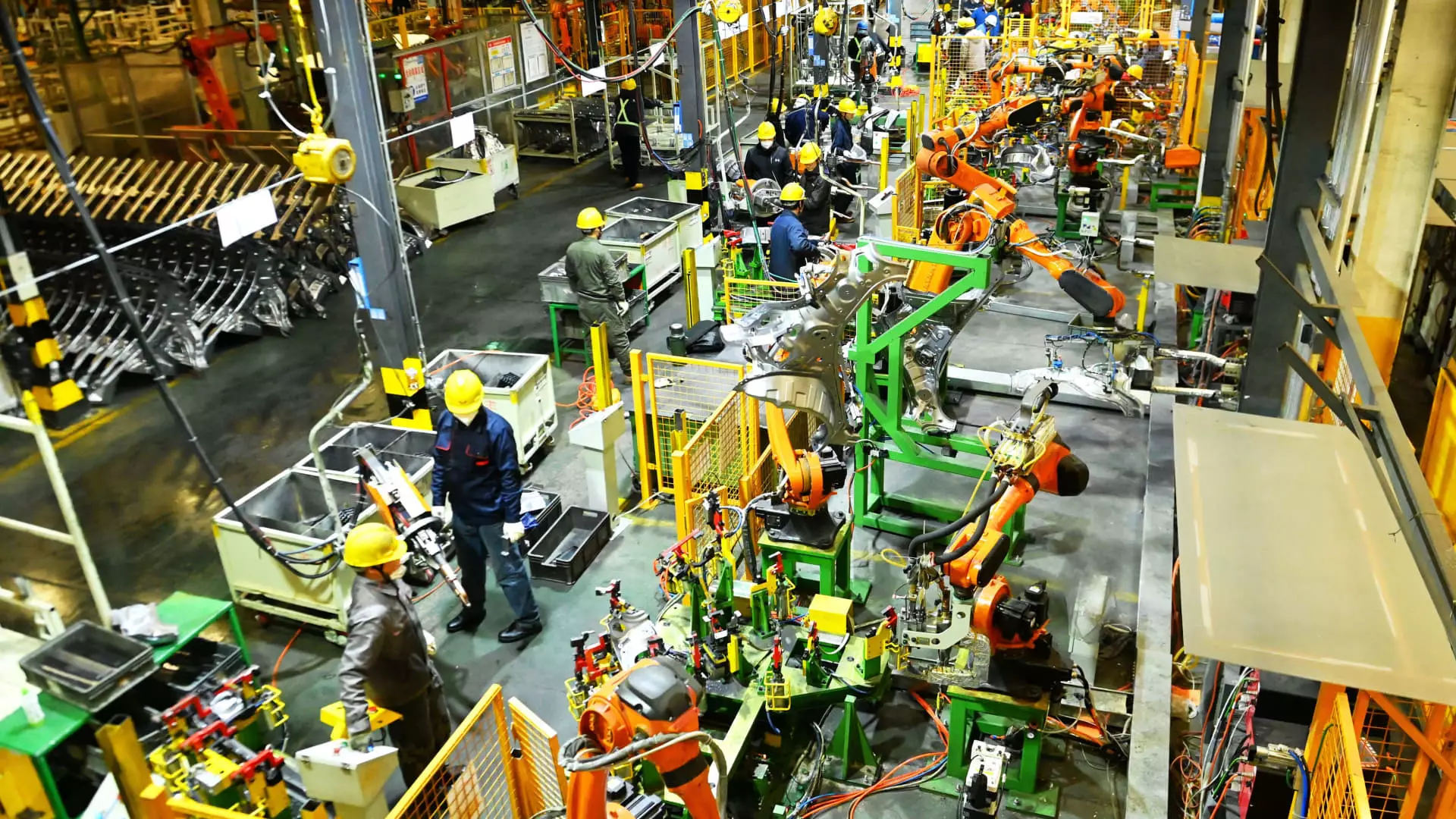In an economic environment riddled with turbulence and uncertainty, President Trump’s deliberations on tariff exemptions for automakers represent a deep and complex regulatory conundrum. The administration initially imposed hefty tariffs on imported vehicles and parts – ostensibly as a measure against international adversaries, particularly China – but the ripple effects are now threatening the very fabric of the American auto industry. It’s clear that while intentions may be noble, the execution is fraught with peril, potentially upending decades of progress in the automotive sector.
The Economic Paradox of Tariffs
At their core, tariffs are marketed as tools for protecting domestic manufacturing and fostering job growth. However, the reality often contradicts this narrative. Instead of shielding the American economy, these tariffs have created an environment of instability where costs are not merely increased for automakers, but also passed on to consumers. As soon as news broke of potential exemptions for auto parts, stocks in this sector fluctuated wildly, providing a vivid illustration of the market uncertainty that stems from tariff policies. The mere possibility of exemption suggests that the automotive industry is not just surviving under these tariffs, but is in real danger of collapsing under their weight.
The Misguided Focus on Fentanyl
President Trump’s rationale for imposing these tariffs tied to fentanyl production is perplexing. Addressing a health crisis through trade policy seems less about economic strategy and more about political posturing. This approach sidesteps the complexities involved in battling addiction and fails to address the root causes of this epidemic. By linking tariffs to fentanyl, the administration risks alienating an entire industry whose survival has historically been tied not just to trade, but also to deep-rooted challenges like innovation and consumer demand.
The Lobbying Clamor of the Auto Industry
The outcry from automakers and policy groups showcases a critical strain within the industry’s relationship with the federal government. The call for relief indicates a broader malaise: many players in the sector are reeling from cumulative financial pressures, citing distress and escalating production costs. An unusual coalition of policy groups urging the Trump administration to reconsider the new tariffs signifies not merely a complaint but a grave warning signal that unchecked policy could lead to irreversible harm.
When titans of industry like Mary Barra, CEO of General Motors, call for clarity, it illustrates a fundamental shift. Executives are not merely looking for minor adjustments; they require a stable framework to make informed strategic decisions. Without this, investments that could foster innovation and growth are vulnerable to chaos.
25% Tariffs: A Trigger for Disruption
The impending 25% tariffs set to take effect on auto parts serve as a stark reminder of the complications wrought by hasty policy decisions. These tariffs will add another layer of complexity to an already fragile supply chain, contributing to the ‘cost compounding’ that the industry has been grappling with. What may seem like a simple increase on paper may translate into real, tangible consequences on the ground; layoffs, facility closures, or worse yet, a flight of innovation overseas. The specter of retroactive displacement looms large, where once-stable jobs could vanish overnight, leaving communities to deal with the fallout.
The Future Landscape: Necessity for Reform
The discourse surrounding these tariffs reveals a pivotal moment for the automotive industry. If Trump genuinely seeks to bolster American manufacturing, he must pivot from ardent policies that stifle growth to a more nuanced approach that delivers clarity and fosters innovation. By easing tariffs, he can provide the automotive sector with the breathing room it desperately needs to pivot, adapt, and ultimately thrive in an increasingly competitive global landscape.
Respective industry stakeholders may contest that the looming tariffs reflect inflexibility in governance, a lack of understanding of market dynamics, and an unwillingness to collaborate with key players. The voices of concern from automakers should not be seen merely as lobbying pressure; rather, they should be interpreted as a clarion call to rethink the broader implications of trade policies. The future of the industry may depend on it, and unwavering insistence on punitive measures will only serve to alienate those who are crucial for revitalizing the U.S. auto landscape.


Leave a Reply